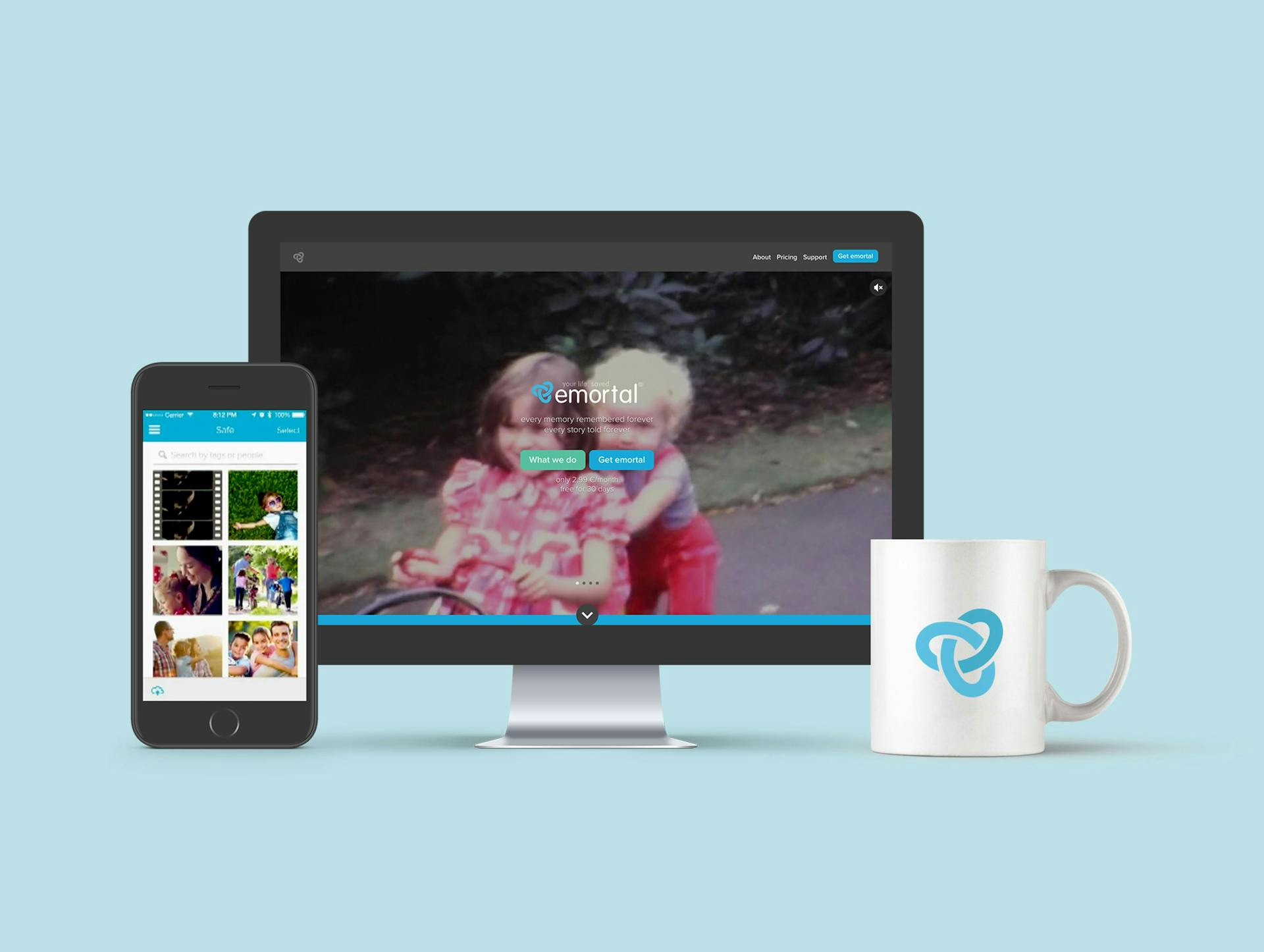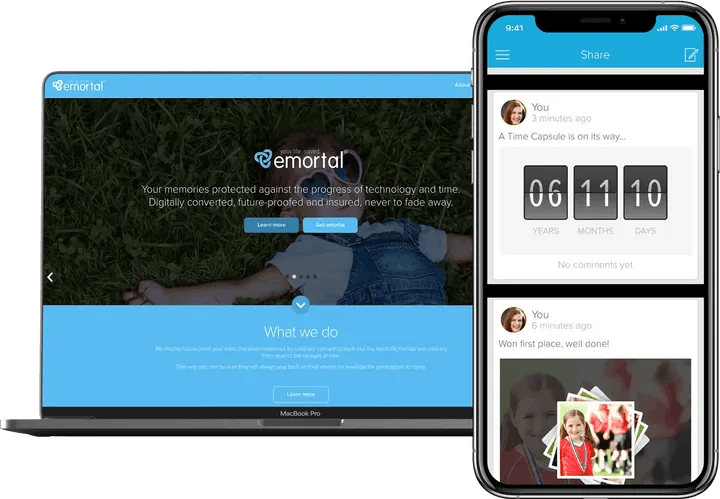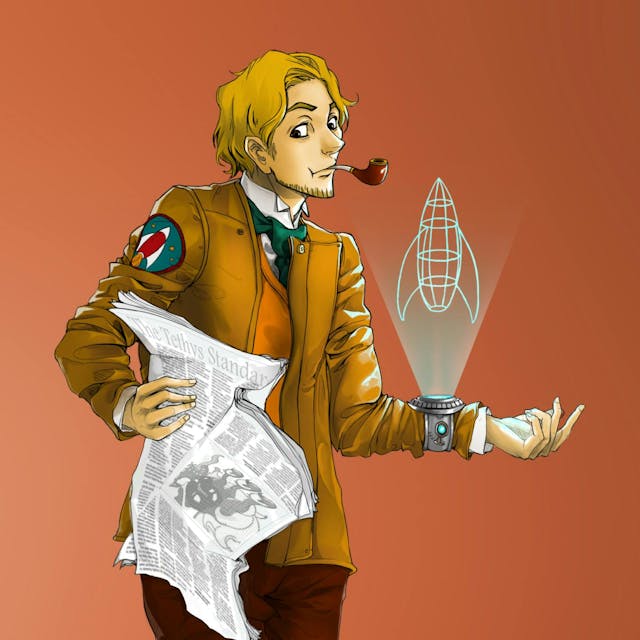Protecting Memories For Future Generations

One of Rocketmakers’ most long standing clients is Emortal, a company which ensures digital documents and memories are never lost.
In 2022 we released an innovative photo-sharing app for Emortal, but our partnership extends far beyond that one project.
Our company storyteller Ned Vaught recently spoke to our CEO Richard Godfrey, who gave us more detail about the Emortal project, and explained how Emortal hopes to allow future generations to engage with today’s digital content forever.
Ned: Your work with digital preservation actually started long before Rocketmakers began working with Emortal, before you even co-founded Rocketmakers. Can you tell us about this?
Richard: I’d be happy to. For several years I led a team at Microsoft that created innovative test cases for new products as they were being released. One of those projects was a collaboration with the National Archives, which has a responsibility to collect documents for future generations to consult. In recent decades, the proliferation of digital documents stored in outdated formats has posed a problem for them. For example, how would a researcher today access documents created in the 1980s using WordPerfect?
Ned: What’s “WordPerfect?”
Richard: That’s my point exactly. There was a time when WordPerfect was the standard word processing software used by everyone, but most people today barely remember it or have never even heard of it. It may seem hard to imagine, but today’s standard technology is headed for a similar fate. In a few decades, everything from Google Docs to .jpeg images could possibly be just as outdated and forgotten as WordPerfect.
Innovation is great - it’s what Rocketmakers is all about - but with every software innovation you tend to leave a few things behind. Over time, this adds up, and before you realise it some really important things can be lost.

Ned: So how did you help the National Archives?
Richard: We created a virtual Microsoft personal computer which could read Word documents from earlier generations. It’s already very difficult to access documents written with the earliest versions of Word, and when you can read them the formatting and other features can be lost. This will only become a bigger problem over time. With the software we created, we helped ensure future historians will be able to read documents easily and as they were intended to be read.
Ned: And Emortal hopes to do something similar, but for all types of digital content?
Richard: Yes, that’s right. I met Emortal’s founder, Colin Culross, when we were still a relatively new company. A close family member of his had been very ill, and he had realised that lots of important memories were stored on early digital cameras that were getting harder to access.
The more he looked into the issue, the more he understood what a potential disaster this could be for humanity. Storing photos on Facebook or various other cloud backup tools is only a stop-gap issue as they tend to convert them to lower quality images, and there’s no guarantee any large technology provider will last forever. If nothing was done, everyone could permanently lose years and years of their family’s history.
Colin got in touch with us to help make an early prototype, and we’ve been working with Emortal ever since.
Ned: It sounds like a very ambitious and important project, but also an incredibly big task.
Richard: It’s certainly very important, and Colin’s work has the attention of some of the most prestigious minds in tech worldwide. In fact, Emortal’s advisors include Vint Cerf, one of the “fathers of the internet.”
Ned: Wow! That’s impressive.
Richard: Vint has actually been talking about what he calls “bit rot” for nearly a decade, warning that we may face a “lost century” of data if we’re not careful.
He’s actively involved in Emortal, and actually visited the Rocketmakers office in 2019 to talk to us about it. It was a real thrill for all of us to meet him.
Ned: I think I have a good understanding of the importance of Emortal now, but can you explain the technology behind it? How can we create a digital product today that will always be accessible in the future?
Richard: We can’t. There’s no way to totally futureproof technology. That’s why there’s much more to Emortal than just the technological component that Rocketmakers is working on.
Ned: Can you explain that?
Richard: Sure. A big part of the Emortal project is setting up a foundation which will monitor technological change, and update digital items over time to ensure they stay available.
For example, there are hundreds of different formats for preserving an image today, but the most widespread formats are .jpeg and .png. If you want to ensure a family image is available forever, the first step is to ensure that it is stored in a format which is widely used and more likely to be accessible for longer.
But a day is coming when even formats like.jpeg and .png will be out of date, and a day will follow after that when it becomes almost impossible to open files in either format. As that day approaches, the foundation will identify the need to migrate .jpeg and .png images to a new format before it’s too late.
Ned: Sort of like how families who had Super 8 films had to convert them to VHS tapes in the 90s, and now probably need to get them all digitised before VHS machines disappear?
Richard: Precisely, except with Emortal this will continue indefinitely into the future without someone in the family having to remember.
Ned: It sounds like a very valuable service, and something that would probably be reserved for the most important memories - not something you’d do for just anything.
Richard: Yes, exactly. This is where the recent work Rocketmakers has done comes in. We’ve designed a smartphone app which helps people select which memories are most important, and place them in a digital vault where they’ll be safe. They are stored in the original form, not compressed, on highly secure servers that can be easily accessed anywhere in the world.
But this is just one small part of our work with Emortal, which in turn is just one part of Emortal’s mission. It’s a very important project, and one that we’re extremely proud to be part of.
RM: Thanks so much for telling us more about Emortal, Richard. We look forward to hearing more updates soon!
Richard: Anytime!
If you're interested in working with us on a similar project, get in touch.



